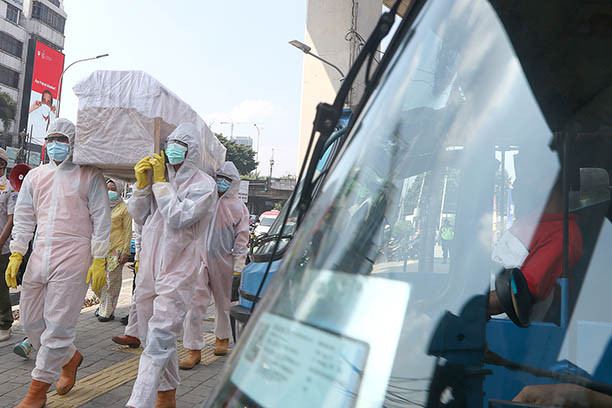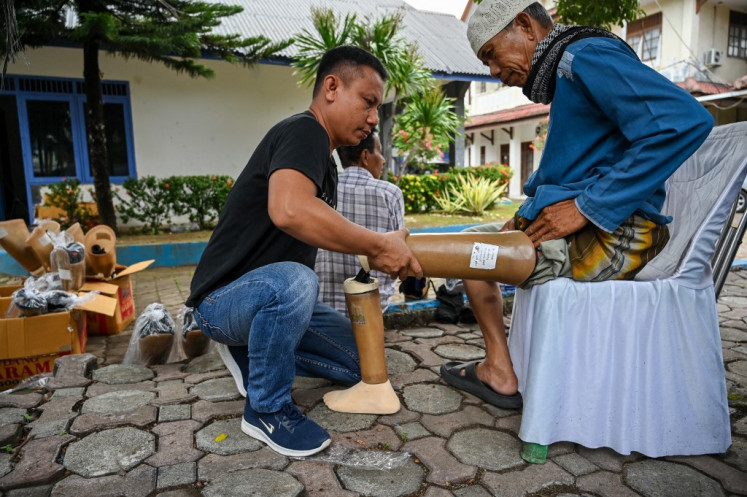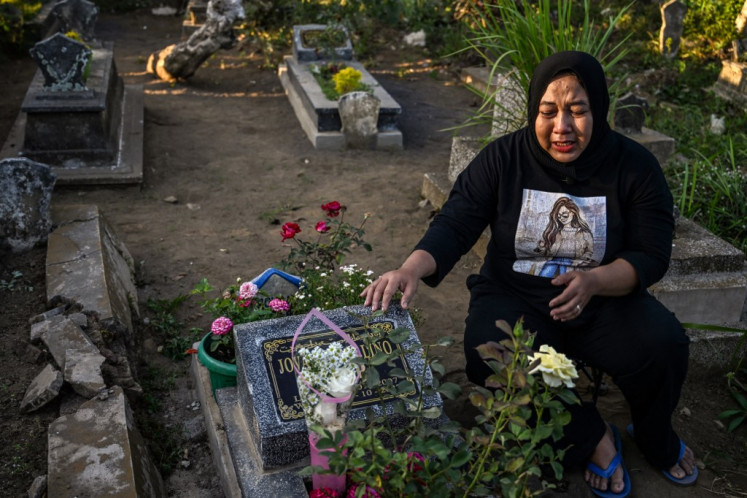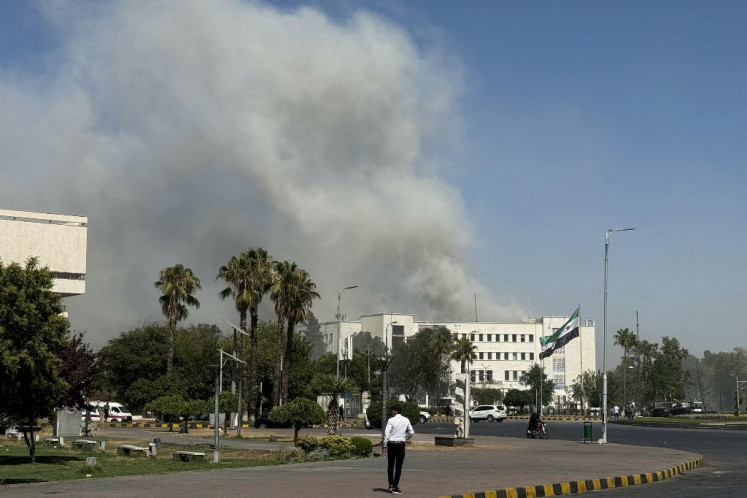Popular Reads
Top Results
Can't find what you're looking for?
View all search resultsPopular Reads
Top Results
Can't find what you're looking for?
View all search resultsTime to hit the brakes
For virus epicenters like Jakarta, it is time to consider whether the transition to normal activities should be stopped and restrictions reimposed.
Change text size
Gift Premium Articles
to Anyone
F
rom whatever angle, the current state of the pandemic in the country does not look good. The first wave of transmission that began six months ago has not ended. The number of cases and deaths has continued to increase and the curve of infection has never flattened, despite the implementation of large-scale social restrictions (PSBB) in virus epicenters like Jakarta and East Java.
There has not been any significant improvements in measures to reduce transmission either, turning hospitals in the worst-hit regions into virus clusters, instead of safe places where people can receive treatment. There have been numerous reports of hospitals becoming overwhelmed, with bed occupancy exceeding half of the maximum capacity.
Health workers have been the main casualties of the uncontrolled transmission. The Indonesian Medical Association (IDI) reported on Monday that 100 doctors had died from COVID-19 since the first cases were confirmed on March 2. As of Tuesday, Indonesia had recorded more than 177,500 confirmed cases and more than 7,500 deaths.
The Health Ministry has played down claims about hospitals becoming overwhelmed, saying the nationwide capacity was still sufficient. But we have reason to doubt this, given the government’s poor reporting on cases and deaths.
COVID-19 task force spokesperson Wiku Adisasmito has admitted that the bed occupancy rate at COVID-19 hospitals in Jakarta was “no longer ideal”. Jakarta currently has 67 COVID-19 referral hospitals and 170 hospitals providing services for COVID-19 patients.
However, he added, the bed occupancy rate in isolation rooms and intensive care units (ICU) in Jakarta had reached 69 percent and 77 percent respectively. Wiku said the rate needed to drop to 60 percent to reduce the burden on healthcare workers.
Given the situation, the reopening of schools and other activities must be delayed and drastic measures need to be taken to stop transmission. It has been proven that compromises to salvage the economy do more harm than good in the fight against the virus.
For virus epicenters like Jakarta, it is time to consider whether the transition to normal activities should be stopped and restrictions reimposed.
The government should even consider implementing a full lockdown in the capital to curb high intercity mobility. Strict measures to enforce health protocols and ban crowds should also be considered.
In countries known for their success in handling COVID-19, like China and South Korea, governments were prepared to reinforce lockdowns to prevent further spikes in cases. Indonesia has not looked back since it moved to reopen the economy two months ago.
It is true that Jakarta’s transition out of restrictions has been extended and Bali’s reopening has been delayed, but no real measures have been taken to ban crowds and restrict mobility. People seem to have returned to normal activities despite the crisis facing hospitals, as more doctors and nurses fall prey to the virus.
The lack of awareness about the hospital crisis must be addressed, or else the country’s health system will be in danger. We face a long and uncertain fight against the virus.










